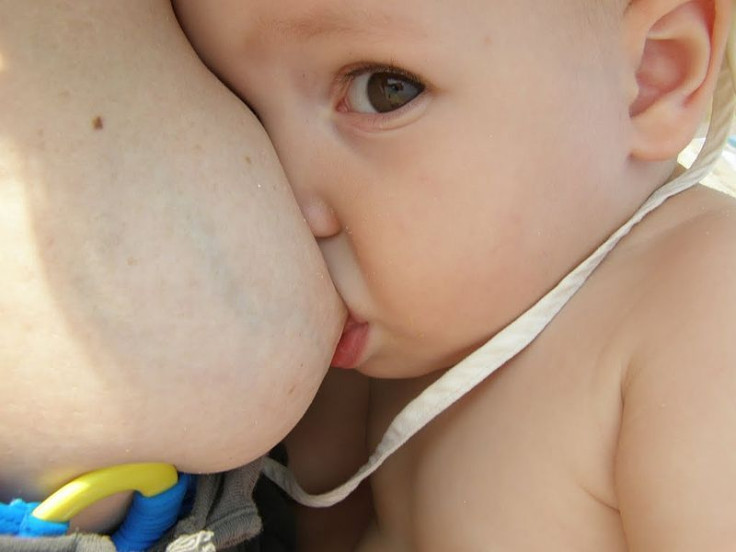Alicia Silverstone Starts Breast Milk Share Program Through Her Blog, Despite FDA Recommendations Against It

Actress Alicia Silverstone is notoriously environmentally conscious, doing everything from chewing her baby's food for him to recommending all-natural vibrators. And this week she's managed to shock our senses again, soliciting readers of her blog to share their breast milk with other moms in need of organic milk. The problem? Her milk share program, called "Kind Mama Milk Share," goes against the recommendations of the U.S. Food and Drug Administration (FDA).
"A lot of women unfortunately have a similar struggle, and there's no reason why they shouldn't be able to give their babies the most amazing start in life with clean, mean, glorious breast milk," Silverstone wrote on her website The Kind Life. "And because we are a community of beautiful souls who recognize the importance of food as health, I say we help support those mamas and babies who need a hand during one of the most important times in their lives."
Imagine that. You're in need of breast milk and miraculously a woman in a town near you types into a blog offering hers up. But is it safe?
Medical Daily has reported time and time again about the health benefits of babies being breast fed (see here, here, and here). For instance, a study in the United Kingdom found breastfeeding was linked to people having a better socioeconomic status later in life. Breastfeeding has also been shown to cut the risk of sudden infant death syndrome, or SIDS, in half. Babies who are breastfed are less likely to develop allergies, have a reduced risk of becoming obese, and are likely to have a higher IQ.
It's no surprise that mothers, out of concern for their child's health, would want to give their babies breast milk instead of formula. It's especially important to mothers who have researched its benefits. But formula isn't all bad. Commercially prepared formulas are nutritious for babies, and can even hold vitamins that breastfed babies can only receive from supplements.
Silverstone's milk share, for mothers who do not want to go the formula route, carries with it some inherent risks. The FDA warns against the use of donor human milk, especially milk acquired directly from individuals through the internet:
"When human milk is obtained directly from individuals or through the Internet, the donor is unlikely to have been adequately screened for infectious disease or contamination risk. In addition, it is not likely that the human milk has been collected, processed, tested or stored in a way that reduces possible safety risks to the baby," says the FDA.
To avoid these health risks, the FDA recommends against feeding babies breast milk directly from individuals. However, with full knowledge that many may do so anyway, the agency also gives some tips on how to minimize the danger to your baby.
First, make sure you consult a healthcare provider before feeding your baby human milk from anyone other than the baby's natural mother. Also, be sure to consider the possibility that your baby could unknowingly be exposed to infectious diseases, including HIV. The FDA also recommends that mothers only accept milk from donors who have been screened for safety.
Let's hope the moms exchanging breast milk on Silverstone's blog take the necessary precautions.
Published by Medicaldaily.com



























